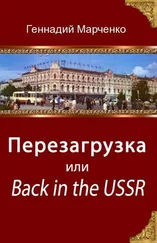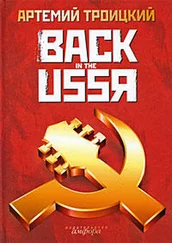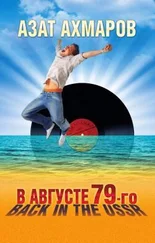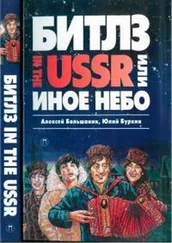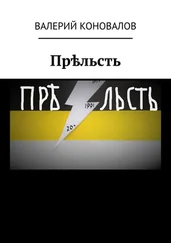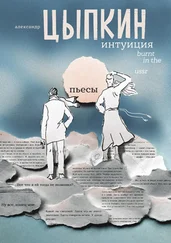It seems as though the night will never end. When a radio in the flat above us begins to broadcast morning exercises I feel as joyful as if I’d seen the second coming of Christ. We crawl out of the basement and I part company from my acquaintances forever. “Lads, if that basement were stacked with vodka and it was thirty degrees below outside you’d only get me back in there under armed escort.”
“What did you expect? The Astoria?”
“But it’s full of rats!”
“So what? Did they eat you alive?”
“Who knows what was on their minds. I’m not hanging around to find out.”
I wander off to the port. Sailors stand by the gangplanks of Caspian ferries scrutinising tickets. They turn me back a couple of times as I try to sneak aboard. An Azerbaijani notices my unsuccessful attempts: “Do you want to earn the price of a bottle?”
“What must I do for it?”
“Carry these two suitcases on board this ferry. Your hands will be full so you can tell the controller that someone behind you has your ticket.”
But the two suitcases seem too large for me to carry.
“Pick them up, give them a try,” urges the Azerbaijani, seeing me hesitate.
The cases are extraordinarily light. “What’s in them, cotton wool?”
“Walnuts.”
The Azerbaijani has been kicked out of Baku by the local police after they stung him for 50 roubles for illegal trading. I pick up the cases and board the ship without any trouble.
When we dock at Krasnovodsk in Turkmenistan I help the man unload his cases. As we step ashore cops surround us. The Baku police must have radioed ahead to their Turkmen colleagues who have now come to collect their bribe. Ignoring me, they take the Azerbaijani to the station, leaving me with the cases. After waiting several hours for him I go to the market and sell the walnuts for 80 roubles. My lucky day.
In the evening I catch a train to Tashkent, slipping the carriage conductor some money. Like all conductors in Asia he regards the railway as his personal fiefdom, except when it comes to cleaning; then it belongs to the state.
Beyond the windows there is nothing but desolation. The desert may be lovely in spring, but this is winter and there is nothing but an expanse of grey dunes stretching between horizons, unrelieved by grass or bushes. Occasionally the train halts by a few wretched clay hovels with mangy camels tethered behind them.
Ashkhabad may mean beloved city, but it doesn’t deserve the name. In the autumn of 1948 it was destroyed by an earthquake so severe that only one building remained undamaged. The town was built afresh, with buildings no higher than three stories. They look as though they were hatched from the same incubator. The streets are only slightly less depressing than those of Krasnovodsk; some are lined with trees but, this being December, it makes little difference.
At the station buffet I fall in with a local alkie called Kerya. Together we banish our hangovers with a bottle of wine then go down to the Tekinskii bazaar. The stock exchange, as the bazaar is called, is a lively place where local alkies congregate. It is easy enough to earn a couple of roubles hauling baskets of apples. As soon as we have a few coins in our hands we take care of our drinking requirements. Only after that do we think of food. We help ourselves to apples, capsicums, Chardzhou melons, and dip our dirty paws into great barrels of marinated garlic.
Kerya shows me a bunch of keys in his possession. “These open all 64 flats in a new apartment block,” he says with pride. “It was built by Bulgarians in an international friendship project. I stole the keys from a drunken builder. It’s still empty. I’ve already slept a few nights there. Come home with me. You’ll sleep like a lord.”
The ‘Bulgarian’ building protects us from the 20-degree frost outside, but I grow sick of Kerya’s company. Drink is his only topic of conversation.
“Where do the other tramps sleep?” I ask. “Do the cops make up feather beds for them in the railway station?”
“Not likely. If they catch you sleeping there they give you a good going over, and if the same cop catches you twice you get a month for sure.” Kerya narrows his eyes like a contented cat. “I had to sleep in a basement for nearly three months before I got hold of these keys!”
He reminds me of the legendary Volga tramp who found himself a place under an upturned boat on the beach. Graciously inviting another tramp to come in and doss down beside him, he placed a pile of dog ends before the man: “Have a smoke, brother, don’t be shy. I was in your position myself not so long ago.”

“Where did you sleep before you got the keys?” I ask, wanting to prolong this rare conversation.
“Like me to show you?”
“Why not? There’s nothing else to do.”
Off we go, picking up a few bottles on the way with the remains of my walnut money. Kerya takes me to a shabby block of flats and leads me down to the basement. Although it is night, the scene below is as bright as day, lit by a bonfire of burning tyres. A group of people are sitting around the fire, women as well as men. Their faces are covered in hideous weeping sores produced by a tropical disease that is rife in Turkmenia. The filth in which the tramps live spreads the infection. When the sores heal they leave a deep scar. It is hard enough to behold children suffering from the disease but the tramps look truly repulsive.
Nevertheless, I am pleased at the thought of company so I sit down and produce my bottles. The basement dwellers welcome me as though I was Santa Claus. I’m already three sheets to the wind and after a top-up I feel such a sense of brotherhood that I invite all the tramps over to our Bulgarian house. Kerya drops into a few more basements on the way back. Soon we are about fifty people. We stock up as we go, from every street-corner, bottle-peddling pensioner.
Our Bulgarian house is soon blazing with light and rocking with noise like a Caribbean cruiser gone off course in the night. Some of our guests sing; others recall old offences. Glass windows shatter and curses echo through the rooms. The police arrive before anyone is killed. They drive us out of the building, whacking us enthusiastically with their truncheons as we go. However, they seem reluctant to arrest us, probably through fear of contagion. In the confusion I manage to slip off and make my way back to the station. I’ve had enough of Ashkhabad.
* * *
As the train slows to a halt between Artik and Dushak I ask a soldier on the platform: “Can I get off for a smoke?”
With a bored gesture, he points the barrel of his Kalashnikov towards the door. However, as soon as my feet touch the ground he shouts: “Stop! I’m arresting you for breaching frontier regulations.” He points a revolver at my head.
A sergeant comes running up and helps escort me to a separate carriage. There is another man already inside it. The soldiers lock us in and leave. I pull two bottles of wine from my rucksack and give one to my companion. We drink quickly before the soldiers return.
Border guards are recruited from the keenest Komsomol activists, the type of person who will happily inform on his colleagues. Someone must have told an officer that we got drunk after our arrest. At Dushak the interrogating officer is very persistent about this. The soldier who arrested me stands by his side looking so miserable that I take pity on him and say that I was already drunk when I stepped off the train.
Then the officer points to my notebook of crosswords. “What are these?”
“Crosswords, I make them up.”
Читать дальше
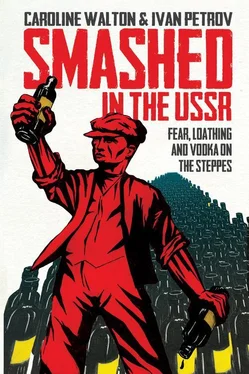

![Геннадий Марченко - Перезагрузка или Back in the Ussr. Книга 1. [СИ]](/books/53319/gennadij-marchenko-perezagruzka-ili-back-in-the-uss-thumb.webp)
